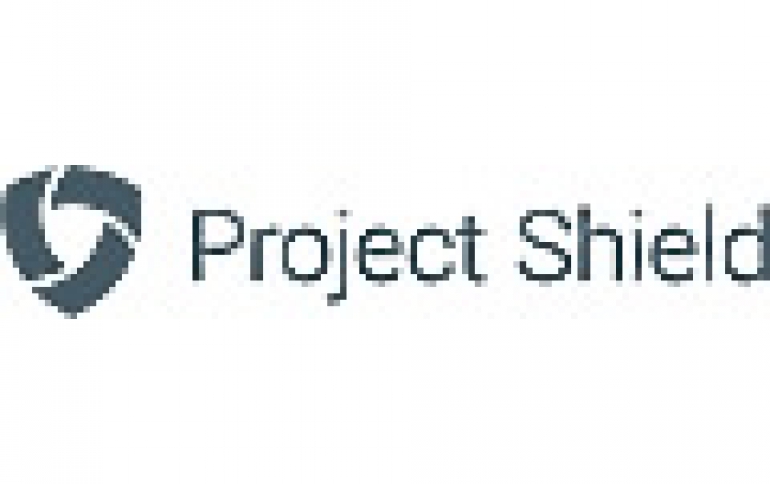
Google Wants To Protect Your News Website From Digital Attacks
Google wants to route the traffic of your news website through its secure servers in order to offer you protection from DDoS attacks. The company is expanding its 'Project Shield' beyond trusted testers, and is opening it up to all the world’s news sites to protect them from DDoS attacks and eliminate DDoS as a form of censorship.
Project Shield uses Google’s security infrastructure to detect and filter attacks on news and human rights websites.
Project Shield is free, and even the smallest independent news organizations will be able to continue their work without the fear of being shut down.
Project Shield protects websites from attackers using technology called a reverse proxy. A reverse proxy allows websites to route traffic - both legitimate and attack traffic - through Google’s infrastructure, which lets legitimate traffic flow through and stops illegitimate traffic from reaching the publisher’s servers.
In order to apply for Project Shield, news websites should
visit g.co/shield, verify their websites and configure Project Shield protection. Configuration requires that website owners will provide their origin server to Project Shield and configure their DNS (Domain Name System) settings to direct traffic to Project Shield.
Google says that some sites may experience an increase in latency as their traffic passes through Project Shield, and that advertisements typically load content directly from an ad network and are therefore unaffected by Project Shield.
Project Shield supports SSL-protected websites. If the publisher uses SSL on its site, the traffic is encrypted from the publisher to Google and from Google to the end-user.
Like similar services, traffic routed through Project Shield is decrypted within Google’s infrastructure and then re-encrypted to the site’s readers. Google decrypts this data to provide caching and DDoS mitigation services.
Project Shield stores two types of data, user configuration settings and logs for traffic that is proxied through Project Shield. Both types of data are stored on Google Cloud Platform.
Google says it uses the collected data for DDoS mitigation to improve the product, and to provide information about their traffic. Google uses the site reader’s IP address and other information to evaluate whether traffic is an attack.
The search giant added that it does not use the information collected from Project Shield for improving search results or targeting advertising to end users.




















